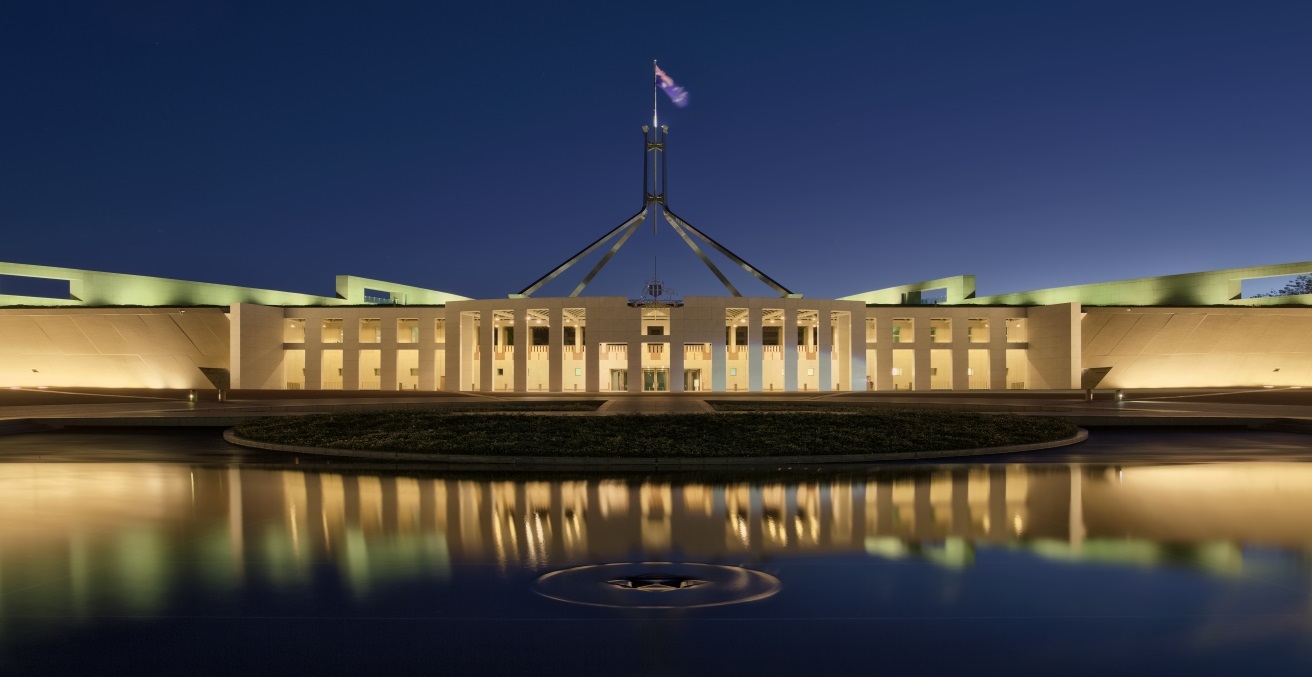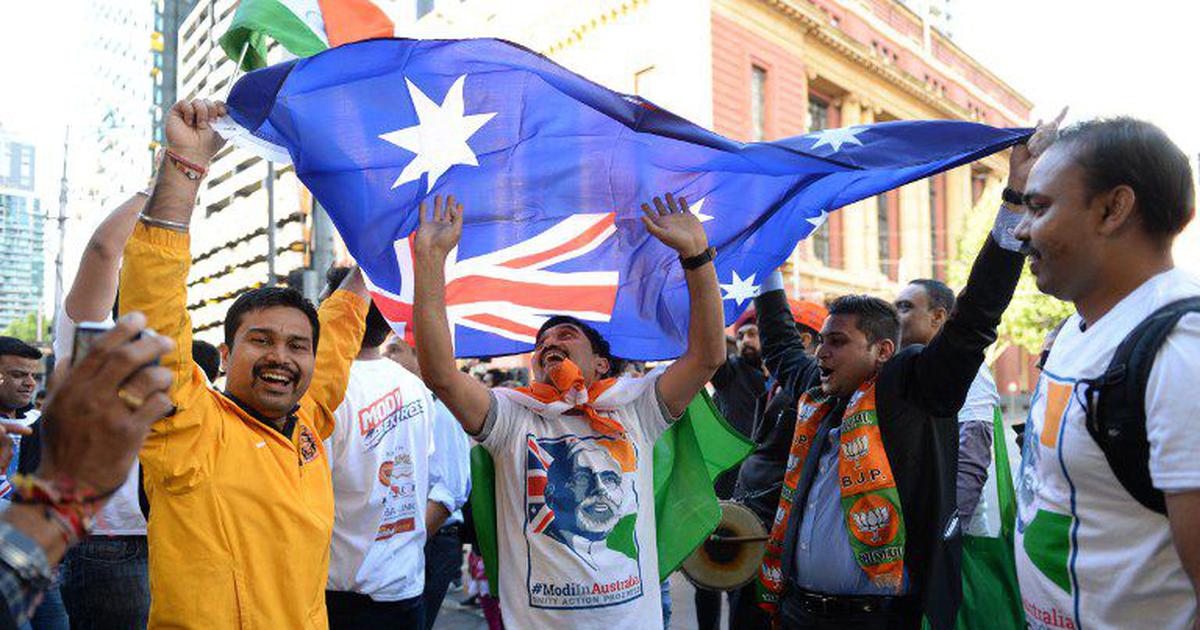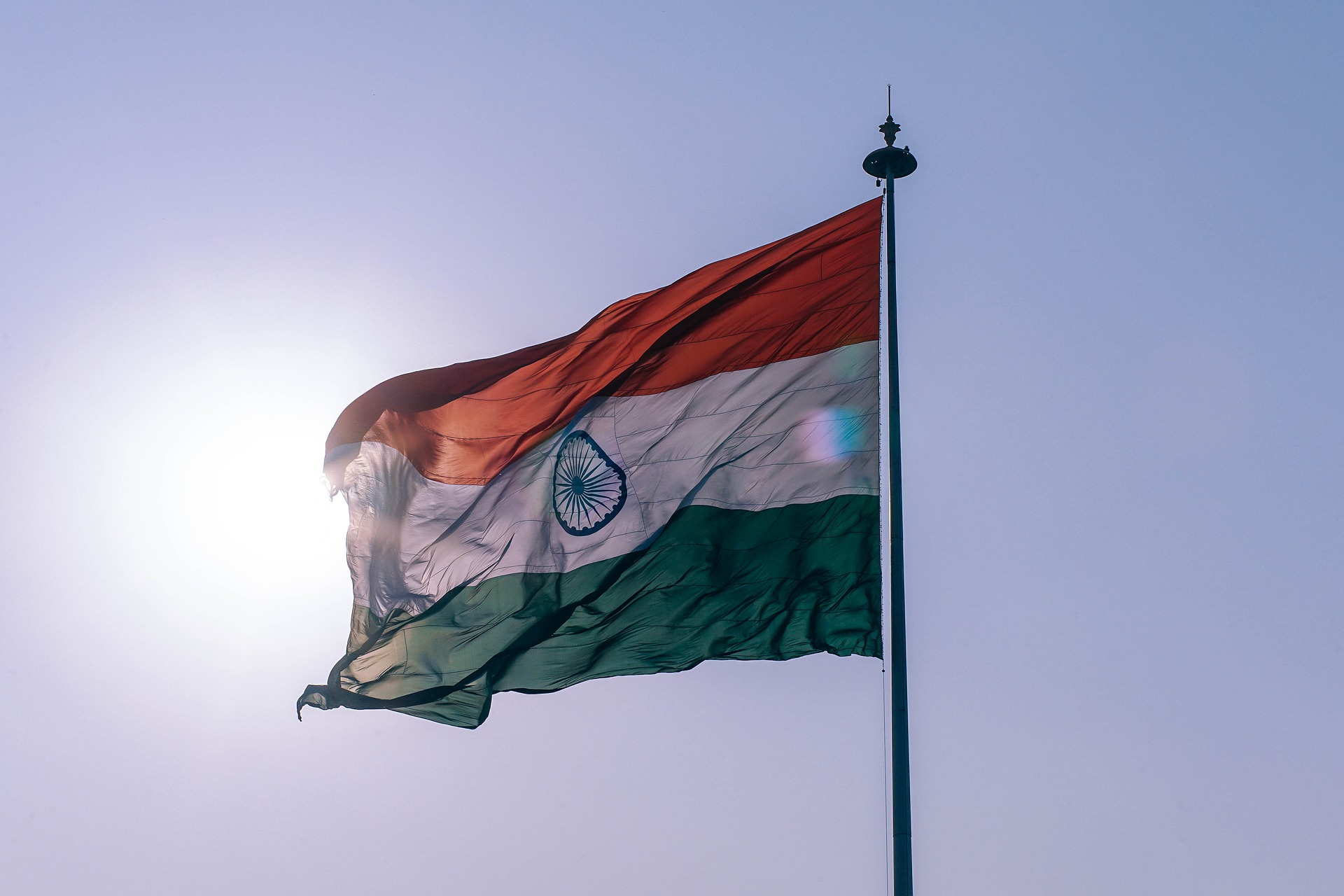Prime Minister Scott Morrison has been touched by Forrest Gump magic. His “Pacific family” policy label has already delivered wins that are as surprising as they are promising.
Come the election, the prime minister went into full Forrest mode: “Run, ScoMo, run!”
A federal election is like a box of chocolates. You never know what you’re gonna get. Morrison reached into the box and pulled out a miracle allsorts. Proof indeed of Forrest’s view that “miracles happen every day.”
When the PM visits Washington in September he’ll get a rare state dinner from Donald Trump, the political equivalent of the medal of honor LBJ gave Gump at the White House: and no jokes, please, about Forrest showing the president the buttocks battle wound.
In the South Pacific, the prime minister has delivered a policy label that’s straight out of the scene where the army sergeant bellows at Forrest: “Goddamn it, Gump, you are a goddamn genius!”
Scott Morrison’s embrace of the “Pacific family” is goddamn genius.
The family idea drives his promise that the islands will be front and centre of Australia’s strategic outlook and foreign policy:
We are more than partners by choice. We are connected as members of a Pacific family. It’s why the first leaders I hosted in Australia as prime minister have been from Solomon Islands, Fiji and Papua New Guinea. It’s time to open, I believe, a new chapter in relations with our Pacific family.
Come in a moment to the pushback from some intellectual heavy hitters who see dangers in “family.” First, savour the genius.
Journos in Canberra spend their lives dogging the detail of what our leaders get wrong. We hacks aren’t programmed to cheer when a leader kicks an inspired bit of politics and diplomacy right through the goal posts. Genius is as genius does, as Forrest would say.
A leader’s magic is to spin a few words into political gold, capturing the moment and proclaiming the future: driving policy and shifting government.
Bumper stickers matter. Leaders have to tell good stories. The minders call it the narrative. If a good story describes great policy as well, run with that Forrest.
In politics, the measure of genius is results. Pacific family has already delivered wins. The new relationship Morrison is building with Fiji is as surprising as it is promising.
Fiji’s Frank Bainimarama has spent much energy since his 2006 coup yelling at Australia and New Zealand, trying to restrict our influence and shut us out. Suva argued for a new regional architecture that wouldn’t be “dominated” by Canberra and Wellington. Fiji has been the revisionist power fighting Australia as the status quo power.
Suddenly, Fiji has embraced Australia as family. The vuvale — family — partnership is a golden gift from Bainimarama. It’s not just a response to Morrison’s cheerful personality. It reveals something about the forces Fiji is feeling: an unease shared by the region.
Like the previous coup leader, Sitiveni Rabuka, Bainimarama sought to escape the clutches of Australia and New Zealand by looking north to Asia. He has had more than a decade to discover the truth that when Beijing says win–win, it expects China to win both ways.
Vuvale is Suva’s offer of a reset and a rebuild with Australia. The vuvale opening suggests Bainimarama now sees more value in Australia’s Pacific role, the weight we offer in balancing an increasingly complex power contest.
Pacific family is a vision carrying lots of questions. Who gets to play dad? And if you twist it hard enough, is family just Oz pushiness or paternalism?
The leading South Pacific scholar Tess Newton Cain told me, “The family hook needs to be used sparingly as it’s a double-edged sword in Pacific island countries. Most recently I heard it described as “a sign that they [Australia] are desperate’’.’ As she has written, family is big talk, and Australia must walk the talk.
Responding to my genius claim, Richard Herr wrote a typically thoughtful piece about who gets to define the family values:
Frequently eulogised by parties of the right for the presumed stability and conservative bias of these values, families are rarely democratic structures.
Family values are inherited rather than constructed. They are passed on from generation to generation by socialising new members into the standards expected of them in ways that are rarely consensual or negotiated …
Whose norms are to prevail as the Pacific family’s values? Will it be the more hierarchically structured values of the Polynesian extended family, the more egalitarian but more fractured social values of Melanesia, or the liberal democratic ideals of Australia?
Even with his cautions, Herr judges: “Honorary “family” status is an important indicator of special intimacy that should not be minimised. The implied warmth and inclusiveness should be valued. But care should be taken against accepting it and the obligations of family literally.”
Warmth and inclusiveness matter as much in diplomacy as in heart and hearth.
Family adds emotion and extra commitment into the strategy and geoeconomics. That can change the conversation we have with the islands.
My previous column noted that Australia’s big new ambition for the South Pacific — economic and security integration — has become the policy that can’t be named.
Australia gets a better hearing in the islands when it talks family rather than integration. Yet family and integration are both elements of the new chapter Canberra is trying to write in the South Pacific. The family must take wisdom from the Gumps:
Forrest: What’s my destiny, Mama?
Mrs Gump: You’re gonna have to figure that out for yourself.




